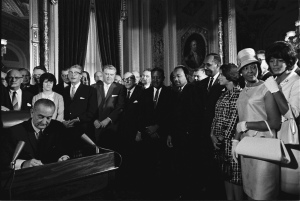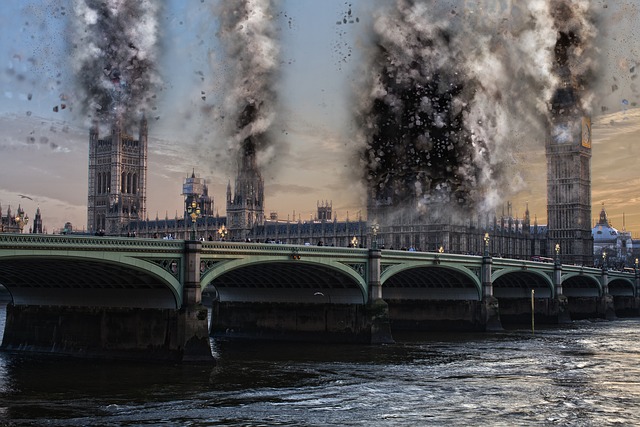
This is the third post in my blog series on Brexit—Britain’s exit from the European Union, for now scheduled to happen on January 31, 2020.
Britons voted on December 12, and the Conservatives (Tories) had their biggest win since former Prime Minister Margaret Thatcher in 1987, with 365 seats in the House of Commons. The Labour party won 203 seats and suffered their biggest loss in decades. The leader of the Liberal Democrats, Jo Swinson lost her seat, and Labour leader Jeremy Corbyn will step down however it’s unclear when. With a 39-seat majority, now duly elected Prime Minister Boris Johnson has a free hand to deliver Brexit. Most polls indicated the Tories would win, but not this resoundingly, and not in areas that have been Labour-strongholds for decades, some over a century. The Labour party is in shambles and while it attempts to pick up the pieces, the United Kingdom as a whole will undertake its most significant political decision since the end of the Second World War.
But Brexit, what form it will take (though most likely hard), and the political and economic effects are anything but certain. Nicola Sturgeon, First Minister of Scotland and leader of the Scottish National Party (SNP) continues to press for a second referendum on Scotland’s independence, saying that [PM] Johnson cannot “bludgeon a nation into accepting your view of the world when it is made very clear that it doesn’t have that view….” She says this after the SNP won 48 out of 59 Scottish seats. To Sturgeon “Scotland showed its opposition to Boris Johnson and the Tories, said no to Brexit, and made very clear that we want the future of Scotland, whatever that turns out to be, to be decided by people who live here.” Johnson told Sturgeon he will not allow a second Scottish referendum, but it’s not that simple. Out of 365 Tory MPs elected, 345 of them come from England, only 6 from Scotland. Scottish Tories ran on opposing an independence referendum and more than half lost their seats. Neither leader backing down sets the stage for a political crisis of nationalism, antagonism and alienation, if Scots feel ignored by a government in Westminster that is out of touch with them yet dragging them into a future, one outside the EU that they neither wanted nor voted for.
Across the British Isles in Northern Ireland, one of the toughest issues to negotiate is the Irish backstop. Under the current Brexit withdrawal agreement, Northern Ireland will still follow EU rules—meaning products from Northern Ireland moving into the rest of the United Kingdom will be checked. A soft border between Northern Ireland and the Republic of Ireland is why the peace process has been so successful. Northern Ireland remains culturally tied to Ireland, politically tied to Britain and economically integrated between the two. A hard border between Northern Ireland and the Republic of Ireland ushered in by Brexit threatens to undermine the Good Friday Agreement of 1998. But it also emphasizes the economic ties of the entire island which some believe might make Irish reunification inevitable. Thus, in a few years the United Kingdom may not exist.
In the United States, centrist political pundits couldn’t wait to use Labour’s defeat to emphasize why a centrist Democrat should be on the 2020 ballot. News media headlines say this makes things difficult for Senators Bernie Sanders and Elizabeth Warren’s presidential bids, as the election across the pond is proof that voters will reject far-left policies. Centrist nominee Joe Biden blamed Labour’s loss on its policies being so “far to the left…” Only that wasn’t the reason Labour lost. According to a poll by Opinium, only 12% of British voters cited economic policies as the reason they voted against the Labour party. The bigger issues were leadership and Labour’s stance on Brexit—both linked to Jeremy Corbyn, and the reason why 43% and 17% respectively voters cast Tory or Liberal Democrat ballots instead of Labour. Among Labour defectors to the Tories, only 6% of them cited economic policy as the reason. Almost a third of them cited Labour’s stance on Brexit and nearly half of them cited Labour leadership. In fact, every centrist MP who left the Tory or Labour parties lost their seats.
Over the past decades British party demographics have changed. The United Kingdom is a society ruptured by social class division, and more recently education, much like the United States is fractured by race. Historically the Tory party was the party of the upper-class elite, while Labour was left-wing and more popular with the working classes. But no longer, as immigration sparks fears over a changing British identity, rural, less educated, white working-class voters are now drawn to the Tories, while educated, non-white, metropolitan citizens support Labour. This election was not about voters rejecting Labour policies. Tories ran on increasing public spending and ending austerity (though not as much as Labour.) It was about Brexit and who voters trusted to lead the country.
Neither Boris Johnson nor Jeremy Corbyn were popular as party leaders. But Corbyn was more unpopular, and as I’ve written before, wasn’t consistent in his stance on Brexit because he never supported British membership in the EU but recognized that staying in is preferable to leaving on a Tory-agenda. His promise for a new Brexit referendum left both Labour-Leave and Remain voters unhappy. Accusations of anti-Semitism used by the British media didn’t help either. Johnson, while having a long history of racism, sexism, homophobia, and Islamophobia, stuck to basics and said his country simply needed to “get Brexit done.” A message that resonated with areas that traditionally vote Labour, mostly white, working class who voted ‘Leave’ in 2016 and in some cities.
What happened in the UK is not fated to happen in the US, as despite having a shared history we are two different countries. But there is a lesson for Americans as we head into 2020. American political pundits saying that the British election proves left-wing policies cannot win are not merely wrong but are perilously close to a willful lie. When running against a strongman leader, as both Donald Trump and Johnson are, the opposition must understand who needs to show up for them on Election Day, and offer a simple, consistent message that speaks that voter’s language. Parties must be willing to step outside the box, and draw the appropriate lines no matter who gets upset or how it breaches the “civility” they are used to. Voters’ personal dislike of Corbyn aside, he wasn’t offering anything new that Johnson wasn’t, and didn’t appear like a principled leader, Johnson did. Much like Joe Biden isn’t offering anything new and is priding himself on keeping everything the same. But if the old way of things was so great, we wouldn’t be in the political, economic and social turmoil we are in now.
Moreover, the American voters that the Democratic party needs to turnout come November 3, 2020, Millennials, Generation Z, women, people of color, do not want the same old, same old. We want something new. We want leaders to speak our language as Boris Johnson did to British voters, no matter what feathers are ruffled. Thus, the British election should be read as a rejection of centrism not progressivism. A rejection of leaders who have yet to learn, that when you try to please everyone, you end up pleasing no one.

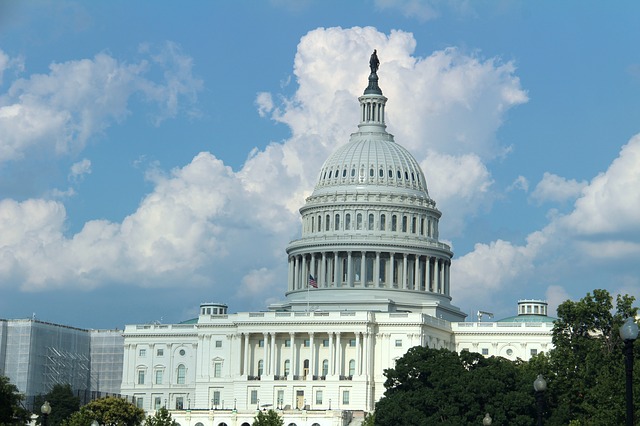

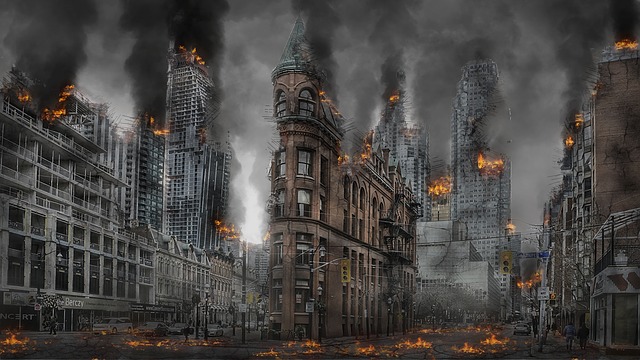



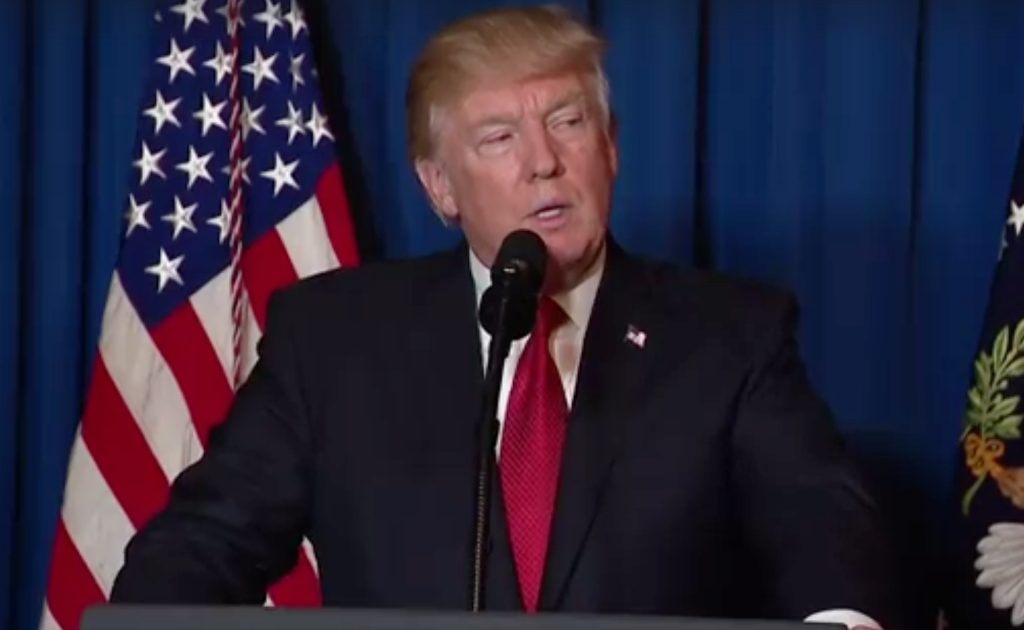



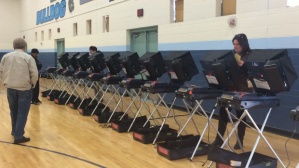
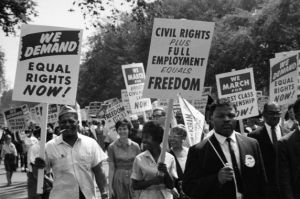 Others point out it is our civic duty to vote. My philosophy is that individuals who make a conscious decision not to vote lose the right to complain when they are unhappy with the results. If citizens want change they must use their voice. However for many African-Americans, the political system is broken and many contend that it was never intended to benefit us as a group in the first place. I do not dispute that. If it is proven that Latino voters refrained from voting because of Obama’s broken promise on immigration, it would seem that they have realized this too.
Others point out it is our civic duty to vote. My philosophy is that individuals who make a conscious decision not to vote lose the right to complain when they are unhappy with the results. If citizens want change they must use their voice. However for many African-Americans, the political system is broken and many contend that it was never intended to benefit us as a group in the first place. I do not dispute that. If it is proven that Latino voters refrained from voting because of Obama’s broken promise on immigration, it would seem that they have realized this too.